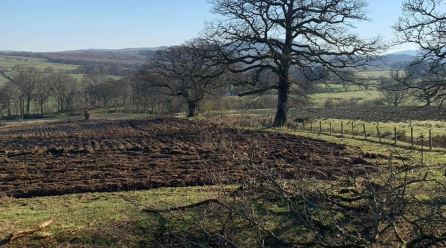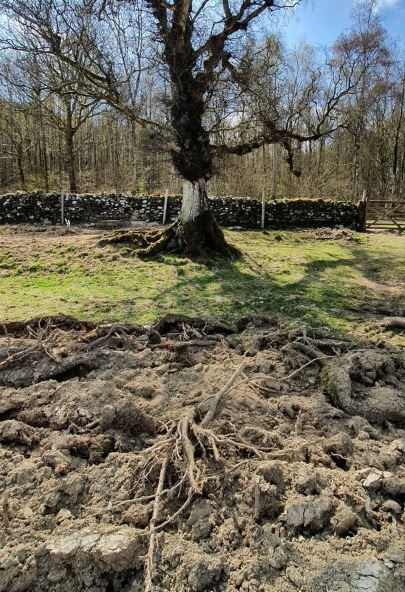
A conservation charity has apologised for a rewilding mistake which resulted in a mushroom-rich meadow containing a host of important plant species being ploughed in error.
The National Trust was the target of a backlash on social media for turning over the soil in the field on its Dunthwaite estate, close to the Lakes Distillery between Bassenthwaite and Isel.
It was work which one critic branded “cowboy conservation.”
Conservation ecologist Rob Dixon, who lives near the pasture and is the founder of Wild Lakeland, said the meadow has a long history of being managed sympathetically and in a low intensive way.
It contained “irreplaceable” waxcap mushrooms — a rare and declining species — and plants such as pignut, catsear and ribwort plantain.
He said the waxcap mushrooms were an indicator of just how valuable the pasture was.
Mr Dixon, who became aware of what the National Trust had done last Friday morning, said all the fungi had now been “killed off” and it would take many years of sympathetic management before they return.

He added that the ploughing of the field would also have released carbon dioxide trapped in the soil into the atmosphere, contributing to the climate crisis which he said was a tragedy.
“It’s a pretty sad outcome but the National Trust has taken it very seriously,” said Mr Dixon.
“They have held their hands up and investigated and are now looking to put it right as much as possible.”
The National Trust has released a statement which read: “A grassland field, near Bassenthwaite, that belongs to the National Trust has been ploughed in error.
“This was our mistake and we recognise that in this instance we failed to maintain the standards expected of a conservation charity to manage and protect the land appropriately.
“As a result we are reviewing our working practices to ensure this doesn’t happen again.
“We are in conversation with those who have raised the issue with us and we are committed to working with local partners to discuss how we can try and restore this land to ensure it again serves as an important home for nature.”








